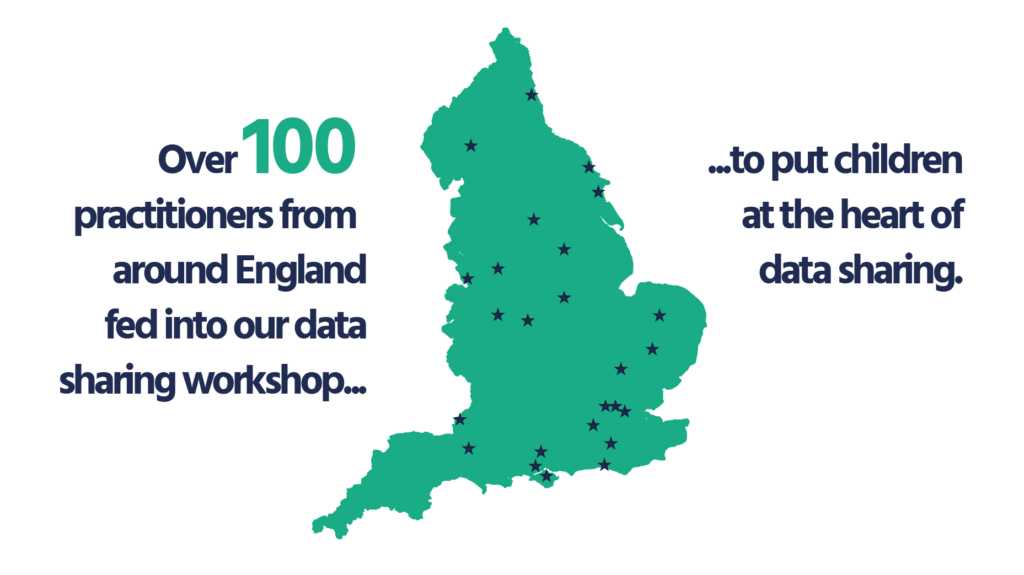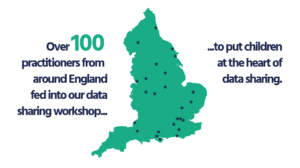
Last Thursday (12th May), the Children’s Commissioner convened partners from across education, health, care, local and national Government to talk about how we can put children at the heart of data-sharing. This roundtable was alongside John Edwards, the Information Commissioner, and his office.
The Children’s Commissioner’s aim was for the workshop to mark a real step change in how we tackle data sharing both at the system-wide level and in the children’s safeguarding context.
Alongside this, she added that the Secretary of State for Education and Government more widely are supportive of efforts to transform how we use data to improve good school attendance, positive interventions for children and better outcomes for England’s young people. The failure to share appropriate levels of data across agencies and at the right time can have clear detrimental effects on young people, particularly those who are vulnerable.
As the Children’s Commissioner outlined in the workshop, a recurring theme of Serious Case Reviews, which look at where something has gone wrong and a child is seriously harmed or dies, is the failure of agencies to share data about children and young people effectively, leading to missed opportunities for successful interventions and in some cases harm to a child.
Take the recent report into death of baby J, a neglected and abused 8-year-old boy who died at the hands of two of his mother’s associates. The Review into his death found that, whilst there are inherent risks of sharing sensitive information, where there is potential for harm, practitioners should always look at the ways in which sufficient information can be shared to safeguard a child.
The UK Information Commissioner echoed this sentiment in the workshop. He highlighted that the law should never be an impediment to practitioners working to protect young people, adding that a piece of legislation should not inadvertently create a culture of fear or silence, where practitioners become wary of sharing information because of perceived penalties.
Over 100 practitioners fed into the workshop, helping the Children’s Commissioner’s office to identify the main challenges to how data is shared across systems and outline the ways in which the child can be put at the centre of decision-making. The workshop focussed on how systems can be built which make data sharing smooth and convenient, where perceived technological barriers are minimised, and practitioners feel empowered to use and share the information they hold.
The challenges the sector faces are complex and multifaceted. The desire to share information across agencies must be balanced with every young person’s right to privacy and the principles of proportionality and consent. It is important to recognise that not all localities are starting in the same position, and each will have unique technological or resourcing challenges. And, it must be recognised that the process of improving data sharing will be a marathon, not a sprint, and that the perfect system can only be developed by putting children and families at the centre whilst trying to remove the perceived legal, technical and cultural barriers which get in the way of every child of being able to thrive.
The Children’s Commissioner welcomed an agreement from the Information Commissioner to produce a resource for practitioners to aid them in data-sharing. In the long term, the Children’s Commissioner’s office will use these insights to draw together a broader set of recommendations, to support the Family Review into the challenges families face accessing services, and our responses and ongoing work in support of the SEND Green Paper.
Last year, the Government published its National Data Strategy, which speaks about using data to better “help and protect people”. At the centre of the Children’s Commissioner’s work is the child, their voice, and their rights. We have a great responsibility to make sure we use children’s data in the most effective ways possible, and as the Commissioner stated at the end of her opening remarks, she is optimistic that we can face these challenges and build a better data-sharing environment.






